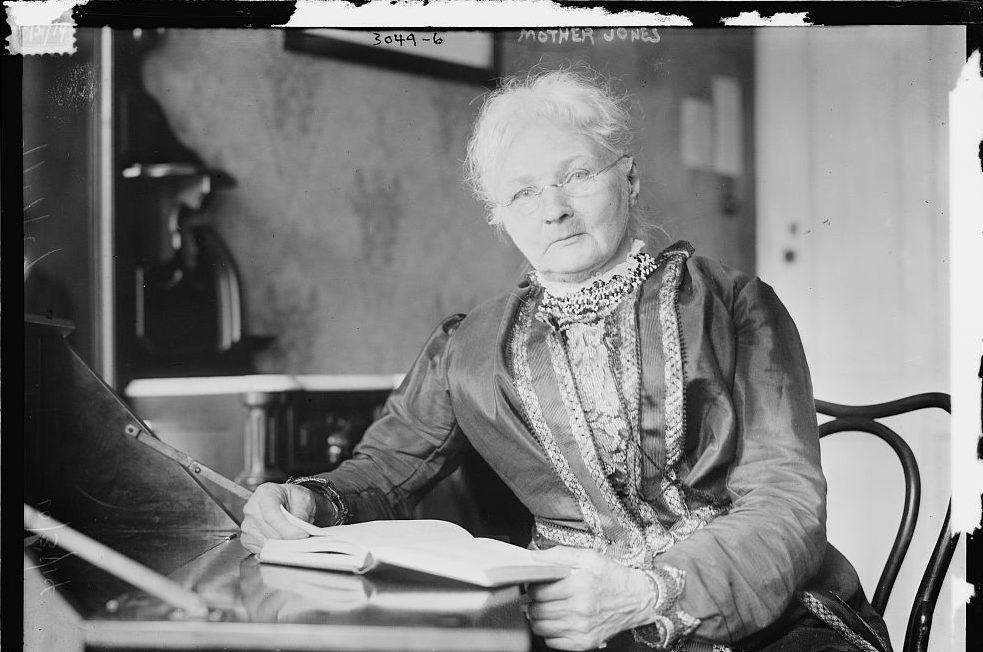Though nearing 80, veteran union organizer Mary G. Harris “Mother” Jones deeply involved herself in the Ludlow strike.
A native of Cork, Ireland, Mary Harris was 10 when she immigrated with her family to Canada amid a nationwide famine that sent many Irish across the Atlantic. Trained to teach, she wound up in classrooms in Michigan but moved on to dressmaking in Chicago. Marriage to union foundry worker George Jones introduced her to labor activism. When George and their four children perished of yellow fever in Memphis, Tennessee, the widow Jones returned to Chicago and dressmaking but lost everything when a fire scorched that city in 1871.
Drawn to join the seminal workmen’s organization known as the Knights of Labor, Jones became an organizer, using her captivating brogue to heap scorn on management. Her preference for old-fashioned black dresses led to her nickname, first seen in print in 1897. When the Knights fizzled out, she allied with the United Mine Workers, the affiliation that brought Mother Jones to Colorado in 1913.
At Trinidad, Jones marshaled children and mothers to march on behalf of their striking fathers and spouses. She delivered fiery speeches and demonstrated against Gov. Elias Ammons. When Jones traveled to Mexico to try to discourage that country from sending men to cross the coalfield picket lines, Gen. John Chase ordered her not to return to Colorado. She did anyway and was held under house arrest by company guards for more than two months. Released, she resumed agitating, which landed her in a vermin-ridden cell. She recalled that three-month confinement as one in which she “fought rats inside and out.” Public outcry forced her release.Initially an outspoken foe of the Rockefellers, Jones changed her tune when, after the Ludlow strike, Rockefeller Jr. invited her to his office and charmed her.
“I don’t hold the boy responsible,” she said. “I misjudged that man sadly.”
Her supporters were horrified.
Betsy Harvey Kraft is the author of “Mother Jones, One Woman’s Fight for Labor”; “Sensational Trials of the Twentieth Century”; “Theodore Roosevelt: Champion of the American Spirit” and other books for young adult readers. She was an editor at E.P. Dutton and Macmillan in New York and lives in Washington, D.C.
historynet magazines
Our 9 best-selling history titles feature in-depth storytelling and iconic imagery to engage and inform on the people, the wars, and the events that shaped America and the world.


